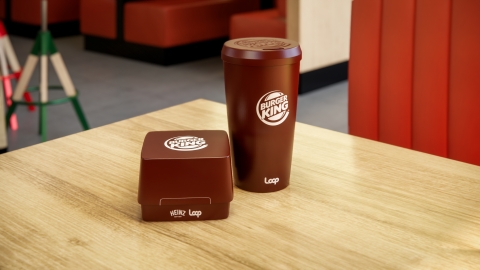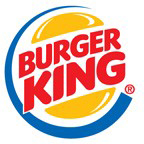Burger King® Brand to Pilot Reusable Containers Through Multi-National Partnership With Zero-Waste Packaging Provider, Loop
Burger King® Brand to Pilot Reusable Containers Through Multi-National Partnership With Zero-Waste Packaging Provider, Loop
Partnership Builds on Commitment to Source 100% of Guest Packaging from Renewable, Recycled or Certified Sources by 2025
MIAMI--(BUSINESS WIRE)--Burger King® restaurants are continuing efforts to minimize environmental impact across the globe by testing a new reusable packaging model that will help cut down on packaging waste. The brand, as part of its Restaurant Brands for Good framework, has launched a partnership with TerraCycle’s circular packaging service, Loop, to pilot a closed-loop system with zero-waste packaging that can be safely cleaned and refilled to be reused, again and again.
Together with Loop, the trial will offer restaurant guests the option to conveniently reduce waste when ordering their favorite Burger King® brand staples like the Whopper® sandwich, soft drink or coffee in reusable sandwich containers or beverage cups.
Starting in 2021, select Burger King® restaurants in New York City, Portland, and Tokyo will be among the first to implement the model, with more cities expected to be added in the coming months. Participating restaurants will feature a collection system, in which guests can return the packaging to be safely cleaned through Loop and reused at Burger King® restaurants. Those who opt for the reusable packaging are charged a deposit at the time of purchase, and when the packaging is returned, they receive a refund.
Our partnership with Loop aligns with Burger King® restaurants rigorous safety procedures around cleanliness and hygiene, all which have become even more pressing during the current pandemic. Loop’s cleaning systems have been created to sanitize food containers and cups, meaning each will be hygienically cleaned and safe before each use.
“As part of our Restaurant Brands for Good plan, we’re investing in the development of sustainable packaging solutions that will help push the food service industry forward in reducing packaging waste,” said Matthew Banton, Head of Innovation and Sustainability, Burger King Global. “The Loop system gives us the confidence in a reusable solution that meets our high safety standards, while also offering convenience for our guests on the go.”
“During COVID, we have seen the environmental impact of increased takeaway ordering which makes this initiative by Burger King all the more important,” said Tom Szaky, TerraCycle and Loop CEO. “This enables Burger King consumers to easily bring reusability into their daily lives, and whether they choose to eat-in or takeaway, they will be able to get some of their favorite food and drinks in a reusable container.”
To make meaningful change, the Burger King® brand recognizes it can’t go at it alone. Through the global Loop partnership, it is also collaborating with Kraft-Heinz and others who will provide insights, expertise and resources to the pilots, helping to expand its impact.
The pilot will help advance Burger King® restaurants sustainability strategy, building on existing commitments to reduce its environmental footprint and protect the planet for the long-term. To support the sustainable production of packaging materials, 100% of guest packaging will be sourced from renewable, recycled or certified sources by 2025. While working towards reducing the use of virgin materials and single-use packaging, the brand is also tackling the challenge of improved waste diversion, with a commitment to recycle guest packaging in 100% of restaurants in Canada and the US by 2025.
You can learn more about Restaurant Brands for Good and the Burger King® brands sustainability commitments and progress at bk.com/sustainability.
About BURGER KING®:
Founded in 1954, the Burger King brand is the second largest fast-food hamburger chain in the world. The original Home of The Whopper®, the Burger King system operates more than 18,800 locations in more than 100 countries and U.S. territories. Almost 100 percent of Burger King restaurants are owned and operated by independent franchisees, many of them family-owned operations that have been in business for decades. To learn more about the Burger King brand, please visit the Burger King brand website at www.bk.com or follow us on Facebook, Twitter and Instagram.
Contacts
ALISON BROD MARKETING + COMMUNICATIONS
Adrianna Lauricella
BK@abmc-us.com

